Hungry and Aware: the reasons why I abandoned meat
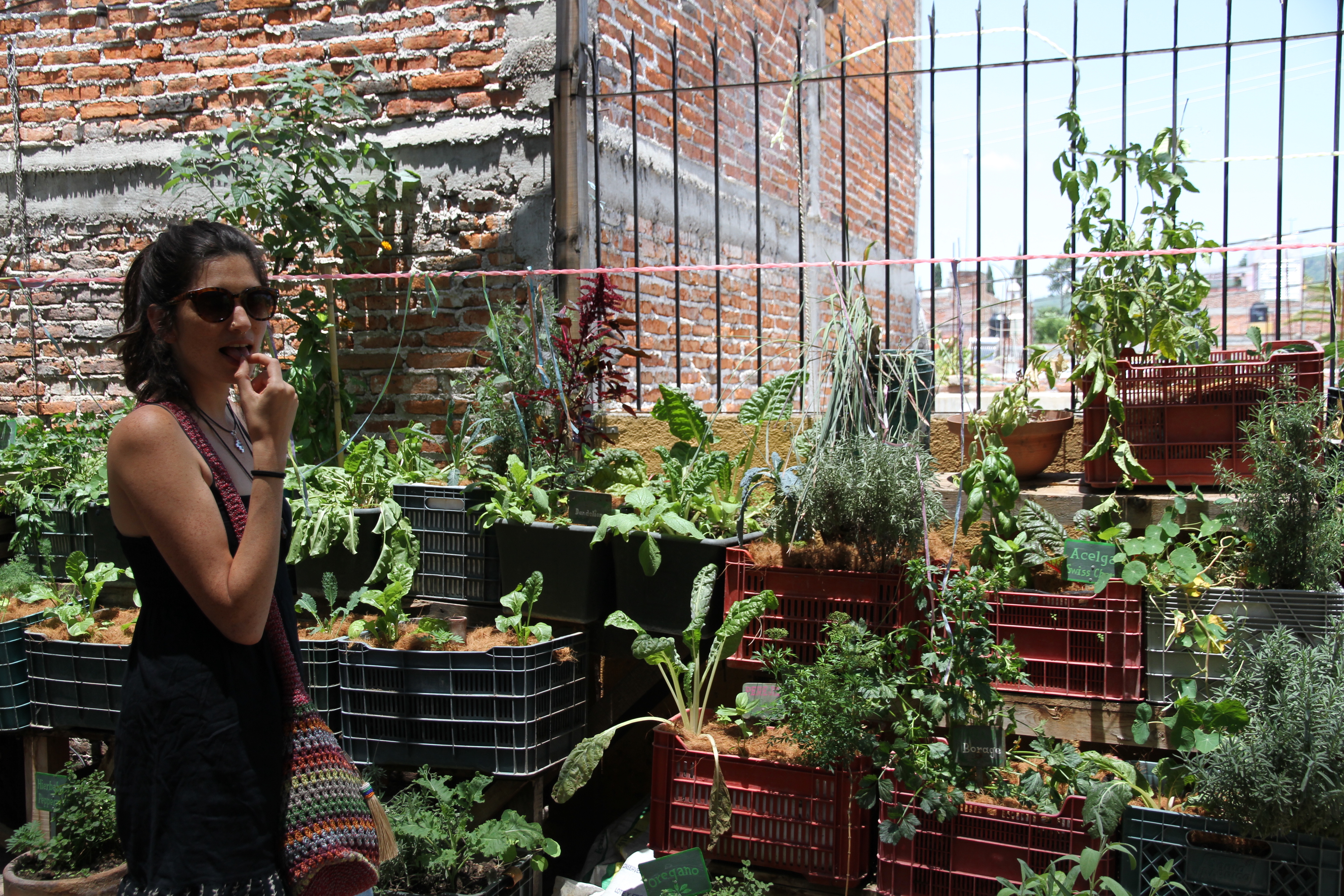
I grew up in a food-obsessed family, with parents whose greatest joy in life was to eat a meal made with the best quality ingredients available in the region. Food makes up the majority of our conversations and is certainly what dictates the schedule and social activities of the week. This love for food must have been a genetic trait because it certainly was passed down to me. According to my mother’s anecdotes, as soon as my baby teeth came out, my favorite foods were already smoked salmon with raw onions and Mexican mole. Not commonly the preferred foods of a 2-year-old.
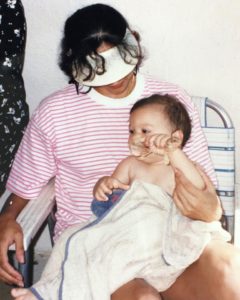
Health
I was never a picky eater. For most of my life I would be glad to indulge on pretty much anything on the menu. This changed in 2013 when my mother was diagnosed with breast cancer. We received this news completely off guard since, until then, there had been no known cancer incidences in our family history, nor in the 35+ living members. It turned out that my mother’s cancer was 95% hormonal, most likely influenced by the menopause pills she had been taking and, to some extent, her diet. This new and foreign reality led me to search for answers in the field of nutrition. My best friend, whose mother was also battling cancer, recommended I read The China Study by Dr. Colin T Campbell. This book changed my life, and introduced me to the world of plant-based nutrition.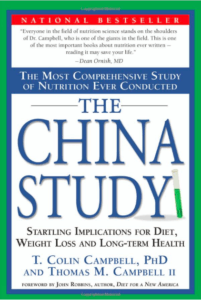
I was avidly reading about nutrition and cancer while I was accompanying my mother to the doctors every week and I would come prepared with questions about what she should be eating. The doctor, one of the most renowned in that specific health system, would give me an answer that still makes me cringe when I hear it come out of any doctor’s mouth today; “everything in moderation.” I had just been reading countless studies about the significant role that food has on the endocrine (hormone) system, but the doctor had ZERO recommendations on what my mom should eat. I was so confused and deeply concerned by her response. Only one year later the World Health Organization classified processed meats as a Group 1 carcinogen, which means that there is strong evidence linking such meats with cancer.
Puzzled by the disregard doctors were giving her diet throughout the entire treatment process, I began asking questions about doctors’ expertise on nutrition and health – not just in that specific health system, but in the medical discipline in the West in general. I came to realize that doctors have very little (rarely more than one single class in the 7 years of medical school) training on the role that nutrition has on health. While this is slowly changing, generally, medical practitioners’ training is focused on eliminating a specific malady with medical treatments and procedures, rather than trying to prevent them with lifestyle choices. Seeing how detached the medical discipline is from actually making health the overarching objective made this whole experience that much more profound. I realized the doctor might remove my mother’s cancer, but she would have no role in guiding her to good health.
From this moment, my passion for nutrition was born.
Environment
In parallel, I was also reading up about the devastating pollution caused by animal agriculture. The statistics on this topic are astounding. According to the FAO (Food and Agricultural Organization of the United Nations), animal agriculture is responsible for about 15% of total global greenhouse gas emissions (GHG). Livestock agriculture uses between 20-30% of the world’s fresh water, and is responsible for 80% of global deforestation. One kg of beef requires on average 15,500L of water to make. For just 1kg!! To put it a bit into perspective; last year there was such a bad drought in my hometown in Mexico that water only ran once a week in our neighborhood for most of the summer. The average shower uses 50L of water which means 1kg of beef = 310 showers!!! Ironically, while there was no water to shower, there was still meat for lunch – everyday.
In 2015 I got a job at an environmental non-profit, working on European and International climate policy. I would spend my days reading stats such as the ones I’ve just mentioned. Being surrounded by this information on a daily basis lead me to consider the environmental and health impacts of my everyday actions, which I did not use to question before. All of the sudden, I was concerned with the chemicals in my cleaning products, where the clothes I bought were coming from, the pesticides in my food, the companies I was supporting when I shopped, and so much more.
Thinking about all of this all the time sounds exhausting. Most people would say; “you can’t over-analyze everything or else you will live eternally tormented by what you can’t change.” I might have been tormented, but I was also on a rampage to find out everything I could about the impact I was having. I felt I got on a long-distance rollercoaster ride, taking me to discover the truths that lay beneath the surface of my actions. And yes, I would often come home astonished and horrified by how dirty and greedy the world can be, but I also felt empowered and responsible to not comply with all of that, or at least try to avoid it as much as I could. I felt it had become my duty to be informed, to always look beneath the surface.
For me, being vegetarian is just one small step I believe I am taking to change the world. It’s my way of resisting the deforestation of the Amazon. Not supporting the industry is more effective than going down there and tying myself to a tree. That has not turned out so well for most activists who tried.

Photo credit: Felipe Werneck CC 2.0
Animal Welfare
Not eating meat is my way of resisting the companies that raise animals in closed factories, under heinous conditions, causing them excruciating pain and torture. Over 56 billion farmed animals are killed every year for human consumption, a figure that does not even include fish and other sea creatures because the quantity is so high it can only be measured in tons. I don’t want to be part of this system and I don’t want to give those companies a single penny of my money.
I suppose this raises the question: why not just eat sustainably raised animals?
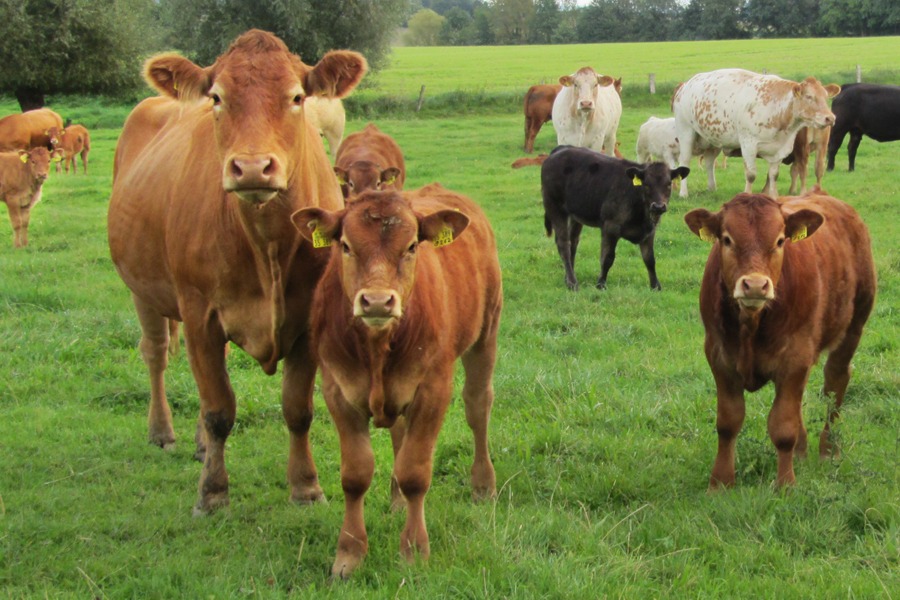
Credito: Cornelia Kopp via Flickr
Personally, I have felt so much better physically, mentally and spiritually since I stopped eating meat.
However, being realistic about the fact that humanity will probably never abandon meat, I do believe we must support local and sustainable agriculture as the alternative. Not only do they raise better quality meat and have a small environmental footprint, but small-scale farmers are the bearers of traditional knowledge and techniques all around the world. We must support them so that they don’t get absorbed into the industrial food system (which is already extensively happening). Therefore, in light of humanity’s addiction to meat, I am in full support of small-scale farmers, and so should you!
I admit that animal welfare was the last motive that persuaded me. Eating animals has merely been a fact of life throughout human history, that it seems like nobody really considered not eating animals until today. If we stop and actually visualize a baby cow being slaughtered for our dinner, of course most people would not be ecstatic by the idea. But it was not something we grew up imagining, and rather everybody around us told us it was normal. As history shows, however, just because everybody does it, does not make it right.
The discussion about whether eating animals is right or wrong is very subjective and philosophical – often the type of uncomfortable conversation most people avoid. But since this is my blog where I can express what I want, my own opinion is that if someone has the courage to kill an animal, skin it, de-gut it, and do all the dirty work, then by all means – enjoy your dinner! Naturally, most people would not have the courage.
As normal as eating animals is for most people, the act of killing a living being with our own hands is an intense and overwhelming act for anyone. However, the consumer does not live this experience. By not being exposed to it, both the act of killing and the life being taken are stripped from meaning. It seems to me that the way in which animals are consumed today is a great act of cowardice.
This is my biggest issue with eating animals: the majority of people who consume from the industrialized food system choose to remain blissfully ignorant about the reality behind their dinner. Most avoid remembering that a steak is a cow, and the process that the cow had to undergo to become a burger. Considering the amount of information already available on the topic, finding out where our food comes from is accessible to any curious eater.

If we do not have the guts to kill the animal ourselves, the minimum level of courage we should demonstrate is to face the reality of which we are complicit – through information and knowledge.
I think it is important to highlight that I am speaking about people who consume from the industrialized food system. Context is immensely important. Eating animals has always been a part of humanity, originating from necessity. There are millions of people across the world who rely on their small herds of sheep and cows as their main source of sustenance and livelihood. Still today, eating animals is a necessity for many. For most people in the West, this is not the case.
Eating animals is the norm, its tradition, and it is a personal choice that whether we agree with it or not, must be respected. However, the conscious choice to remain ignorant is a disgrace, and I believe merits no respect.

There are also major violations of social justice and human rights that directly affect the agricultural industry globally – present in, but not limited to animal agriculture. Elaborate systems of modern day slavery force migrants into illegal labour as fruit and vegetable pickers, and in slaughterhouses. This is yet another important reason to support small-scale-organic, fair trade – always prioritizing local farms – grow your own food, or at least find out about the worker’s conditions of the farms that are producing your food.
I encourage everybody to read about the industrial food system in your country, watch documentaries, read current events on the issue to understand what you are putting in your body, and the industry you are supporting with your money.
Whether we choose to go vegan, vegetarian, support small-scale organic farmers and fisheries, or something in between, part-time or all the time – eating consciously is the goal. Once we are informed, whatever choice we make is our own, but at least it’s honest.
All in all, these are the reasons why I stopped eating meat. What we choose to eat matters to so much more than just your appetite.
Buen provecho,
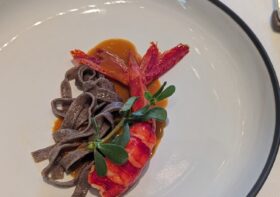
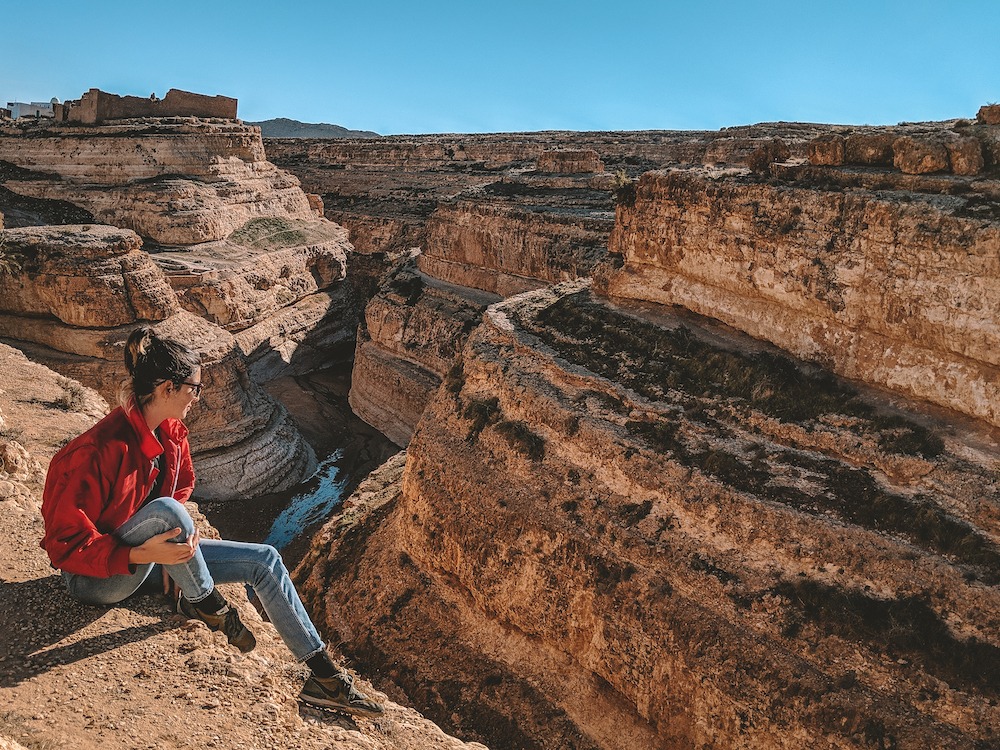
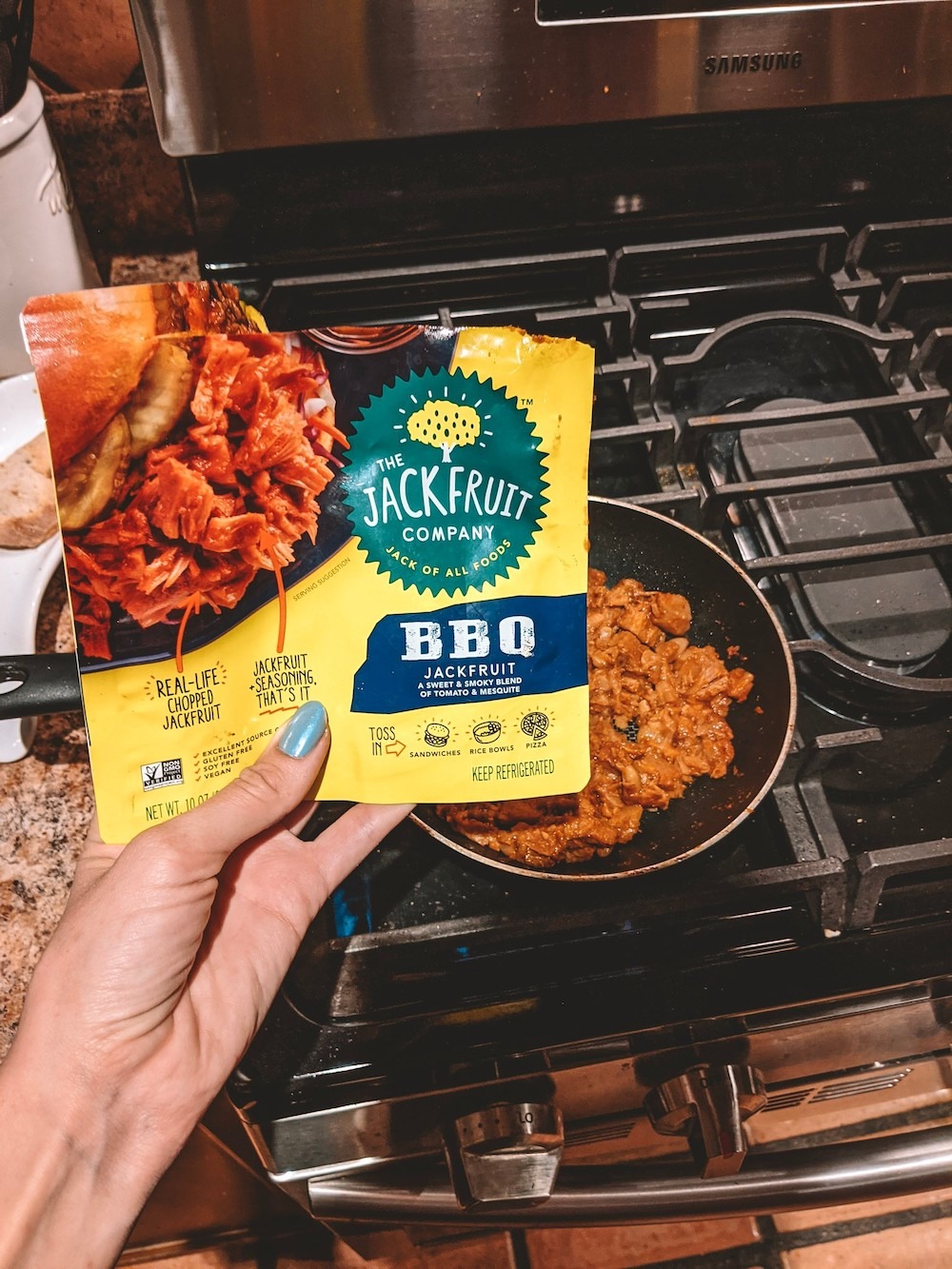
Maritza Sayalero
Cristina que buen artículo y que bien contado. Te felicito.
Me encantaría nos dijeras si hay diferentes tipos de ser vegetarianos.
A raíz del Parkinson de mi esposo hicimos muchos cambios y sobre todo eliminamos casi por completo carne de res. Nunca el dr le dio una dieta a seguir o recomendaciones. Nosotros por medio de la lectura y la investigación hicimos los cambios. Definitivo en mi caso mi cuerpo reacciona mal cuando como mal.
CookieG
Maritza, gracias por tu comentario! pues yo creo que la dieta depende MUCHO de cada persona y nuestro estado de salud… por eso que se me hace absurdo que los doctores dicen “todo en moderación”…como si comer de todo funcionara igual para todo cuerpo, mecánicamente. La nutrición es un campo muy complicado porque existe un exceso de información agobiante, y muchas opiniones. Cuando yo decidí no confundirme con las opiniones o recomendaciones de los demás (que varían demasiado), y en lugar tomar el poder de informarme en mis propias manos y utilizar mi propio juicio – esa fue una transición muy empoderarte: tomar control de mi propia salud. Felicidades por hacer tu propia investigación…a mi me preocupa mucho la confianza ciega que se les pone hoy en día a los médicos. La salud no es solo en nuestro cuerpo físico, sino nuestra mente y nuestro espíritu, y eso es algo que los doctores no tratan, y algo que yo he abordad a través de mi relación con la comida. Sigan informándose y siempre haciéndole caso a lo que te pide tu cuerpo! Un abrazo
Cristina
Felicidades. Excelente articulo y la redacción fácil de entender y tu entudiasmo contagioso. Digna hija de tus padres 💯✔♥️💕♥️
Helena Burges
Cookie
Muy bueno artículo.Me gusto saber un poco mas de tu vida y de como empezastes a tener esta consciência.
Tu blog tiene todo para ser um sucesso y que tengas muchos seguidores. Yo con certeza sere.
Besitos
Helena
CookieG
Gracias Helena 🙂 Espero que a traves de aqui logre compartir un aspecto mas profundo de mis filosofias alimentarias. Besos!
R. Aida Hernandez
Ana Christina
Gracias por compartir la genealogía de tu conciencia en torno a la nutrición. Yo tengo 30 años de vegetariana y ya perdí la energía política para tratar de convencer a nadie de la importancia de comer con conciencia, y leyendo tu texto me percate de que es una lucha política que hay que dar (junto con muchas otras por la justicia social). Seré tu seguidora y compartiré tus escritos (que aparte están súper bien escritos y con ilustraciones chistosas!) En hora buena por este proyecto!!!
Aida
Queta Núñez
Yo prefiero la carne que las verduras, pero me dejaste pensando. Me gustó la sencillez de tú redacción. Y sí recuerdo algunos ricos platillos de tú abuela que enseñó a mi madre a hacer el rico mole. FELICIDADES
Veronica Escobar
Ana Cristina , súper padre e interesante tu artículo, comparto tu opinión de que la mayoría de los médicos no se interesan por la nutrición de sus pacientes o no le dedican tiempo a enseñar a sus pacientes , pero después de tantos Años de laborar te puedo decir que es algo que yo siempre hago, me a fascinado siempre la nutrición y su relación con diferentes patologías .
A la mayoría de los pacientes y te hablo de mi experiencia , no les GUSTA que se les diga las modificaciones necesarias en su estilo de vida , en mis casi 30 años de labores lo e intentado en casi todos mis pacientes e inclusive en mi familia . es algo muy difícil pero que es sumamamente necesario, muchas patologías podemos corregirlas o prevenirlas sólo con modificar nuestra alimentación.
Te felicito por tu artículo, y espero pronto leer mas …
CookieG
Hola Vero!! Sii totalemte….la gente se pone muy a la defensiva cuando uno intenta abogar por un estilo de vida que no cuadra con el suyo, aun cuando esta basado en la cienca – admito que tambien fue algo que me causo nervios al decidir lanzar este blog, saber que mucha gente respondera defensivamente a mi posicion. Que bueno que a pesar del disgusto de tus pacientes sigas hablando al respecto…. en mi opinion la medicina y nutricion deberian ser la misma disciplina!
Rachel Sieder
Hola Ana Cristina, gracias por tu artículo, me gustó mucho. Tengo 37 años de ser vegetariana e hice esa decisión por muchas de las mismas razones que tú: por la producción industrializada de la carne y lo que implica para el medio ambiente, por los campesinos desplazados por las vacas que son exportadas para hamburguesas, y por la crueldad sin límites para los animales que implica el sistema de granjas industrializadas, etc. Ahora desde México me enfurece ver como las compañías transnacionales junto con sus aliados políticos sacan ganancias de vender un montón de productos pésimos para la salud a la población, así generando grandes problemas para las personas (enfermedades, empobrecimiento) y un problema de salud pública de dimensiones gigantescas. Sin duda la nutrición es un campo de acción política fundamental!
Salma Hafira
Cookie! Me encantó el artículo. La voz que usas, super respetuosa de la elección de cada quien, pero dejando claro qué hay detrás. Me gusta que en vez de hablar desde un punto prejuicioso hacia los meat-eaters (como lo hace la mayoría de veg/vegan bloggers) simplemente presentas la información y hechos y queda a consciencia de cada quien. Disfruto saber más de ti. Te admiro por todo lo que traes y eres. Escribes increíble! Quiero leer más!
CookieG
Amiga, Disculpa que apensa vi tu lindo comentario. Mil gracias por los aplauzos – pronto nos vemos para platicar mas! un beso